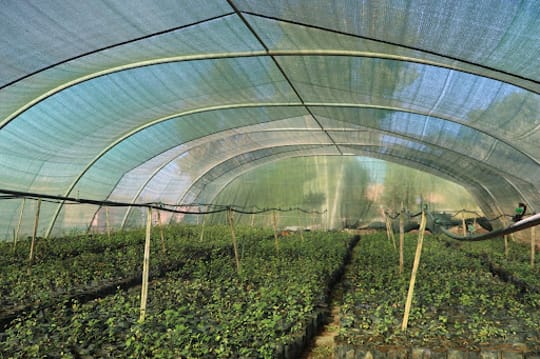Civil Society Growth: Challenges and Opportunities

Advika Roongta
HAF-UVA Intern

The vital role of civil society organizations in furthering development goals is well established. Civil society organizations serve as important sources of information, help to hold governments accountable, advocate for a variety of causes, develop and offer policy alternatives, defend human rights, provide key goods and services, and so much more. In doing so, they contribute to the overall goal of development – generating comprehensive benefits for communities – given reasonable room for organization-specific priorities. As stated by the Organization for Economic Co-operation and Development, they also “stand out.. for their capacity to reach out to, empower, represent, and defend people living in vulnerable situations” i.e., they can often be more inclusive in their approach than other comparable units.
High Atlas Foundation’s (HAF) projects in Morocco are an excellent case study in the value of civil society organizations in development. For example, by collaborating with small farmers to plant and maintain relatively lucrative organic fruit tree nurseries, HAF creates lasting profit-bearing jobs while preserving a commitment to sustainable development. Additionally, the degree of farmers’ participation and involvement in this process is high. They are not just beneficiaries, but active agents throughout, engaging in workshops to prepare themselves for continual action for individual and community growth.
Despite how well recorded and accepted the impact of civil society organizations is, numerous challenges persist in regards to their perpetuation and growth, both internal and external. To begin with, trust in civil society has been declining globally, as it has been for other key institutions. This has the effect of easing attacks on the legitimacy of civil society organizations, which have become noticeably more common in recent years. When such threats are accompanied by substantively more restrictive regulatory environments, they can quickly come to affect the operations, funding, and even survival of civil society organizations. Internally, organizational and sectoral capacity building can be a significant challenge, especially for smaller organizations. While their closeness to the issues and populations they serve is an advantage that can often be very difficult for larger umbrella organizations to replicate, smallness sometimes means organizational fragility too, especially initially. Sectoral efficiency for civil society organizations as an institution is also a relatively underexplored idea; what makes a robust, thriving civil society ecosystem at the global, national, and local levels? How can such an environment be created and achieved? What is its purpose and value?
The set of questions associated with the final challenge of internal capacity building is most relevant in the present Moroccan context. The constitutional reforms of 2011 included many provisions for greater civic engagement and responsiveness to citizen needs, which have since had the effect of empowering civil society by mitigating the challenges associated with legitimacy, trust, and the regulatory environment. The reforms also involved many policies to increase civil society’s role in the public policy process. However, organizational management and effectiveness remain arenas for improvement that hinder civil society’s ability to maximize these possibilities.
Some existing programs are working to bridge these gaps already. For example, USAID’s Civil Society Strengthening Program “aims to… include citizens in the public policy process by acting as a platform to facilitate dialogue and exchange between Civil Society Organizations (CSOs) and different government and institutional actors.” It supports policy advocacy in particular by helping civil society develop constituent networks, form effective coalitions, and develop sound recommendations. Thus far, results include better partnerships and enhanced trust between civil society and government, higher financial sustainability for civil society organizations, and a continuously evolving legal environment in support of civil society.
There is an urgent need to expand and broaden the scope of these efforts. For one, if such support were to be more widely available, many more organizations could benefit therefrom. Additionally, it may also be worthwhile to explore the possibility of creating a small unit – perhaps within the National Dialogue on Civil Society – that specializes in the generation, collection and dissemination of information pertinent to internal growth, at both the organizational and sectoral level. The accumulated knowledge, expertise and insights of such an agency would be extremely useful to all civil society organizations, but would offer the greatest help to small, relatively new organizations.
Although these recommendations reference Moroccan institutions and actors, they are relevant in any context with similar issues. The challenge of organizational and sectoral growth is immense, but it is also an opportunity to create institutions and environments that better reflect the ideals of development as we understand them today.